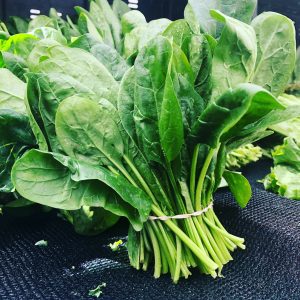
Your liver is the largest internal organ in your body, and it houses more blood than your heart.
A threat to the health of your liver typically means a threat to your overall health.
Your Liver
The liver performs a wide variety of vital life functions, and is its own complex system.
At this very moment, your liver is converting nutrients from your diet into chemical forms your body can use, and store for future use. It is regulating the composition of your blood by providing a doorway to your bloodstream.
Your liver removes toxins and waste from your blood at the same time it releases nutrients into your blood.
What an organ! You’ve gotta love your liver!
What Harms Your Liver
Modern living can overload your liver, and that’s an understatement!
Chemical pollutants in the environment and chemicals in your FOOD, poor dietary habits, pesticides, artificial hormones in both medications and in processed meats, and stress all affect the liver.
This can result in a poorly functioning and highly congested liver, which, in turn, results in fatigue, loss of appetite, skin problems, blood problems, like high cholesterol, and a weakened immune system.
So, be good to your liver.
- Eat whole foods;
- Drink lots of spring water and pure liquids that do not have man-made chemicals added;
- Supplement your diet with key nutrients (such as Dong Quai, calcium D-glucarate, and dandelion) that aid liver health.
Taking care of your liver can regenerate liver tissue, protect your liver from free radical damage, reduce liver congestion (which supports other organs directly linked to the liver, like the gall bladder), and improves your immune function.
Healthy Liver Supplements

- Amino acids are very important in neutralizing toxins in the liver, and they are important in the detoxification process, too. They have been found to reduce toxins to harmless substances and assist in their removal from the body. Some amino acids are key components in the formation of bile acids, which are required for the removal of toxins, fats, and metabolites. Don’t forget that amino acids should be consumed in a group, specifically a minimum of eight, and are found in meats, dairy, nuts and lentils.
- Many herbs promote liver health, such as chicory root, yarrow flower, milk thistle (silymarin),and senna extract. These herbs suppress oxidative degradation and enhance detoxifying enzymes.
- The natural compound calcium D-glucarate, found in many fruits and vegetables, has been shown to support the liver’s natural detoxification mechanism called glucuronidation. This detoxification tool removes various carcinogens from the liver such as hormones, xenobiotics, the toxins in diet sweeteners, and fat-soluble toxins. When the liver is overly exposed to these types of toxins, a dangerous enzyme called beta-glucuronidase forms in the body, and this reverses the glucuronidation process and releases toxins (carcinogens) back into the bloodstream. Calcium D- glucarate has been shown to inhibit beta-glucuronidase activity.
- The dandelion has long been recognized as a liver tonic because it promotes detoxification and reduces liver congestion. It relieves stagnation from hepatitis, jaundice, and gallstones by stimulating the output of bile.
- Dong Quai strengthens the liver by improving oxygen utilization. It has been shown to increase the activity of enzymes in the liver and to protect it from damage from pain relievers such as acetaminophen, found in Tylenol®.
- Lecithin has the ability to make fatty substances more water-soluble, and this helps the liver process fats by efficiently transporting them in and out of the liver. The liver’s cell membranes are composed of lecithin, and these membranes regulate the passage of nutrients in and out. Not only does this enhance resistance to infections, but it also assists in the elimination of cholesterol and other blood fats.
- Milk thistle is the most researched herb used for liver health. Acting as an antioxidant, silymarin, the flavonoid found in milk thistle, protects the liver from damage by increasing the synthesis of amino acids and the rate of liver regeneration.
- Slippery Elm produces a protective lining for inflamed and ulcerated mucosal surfaces common in people who suffer from toxic livers and from abnormal bile production, gastritis, and stomach ulcers.
- Zinc deficiency has been connected to liver disease. Enzymes in the liver necessary for the metabolism of alcohol are dependent on zinc. Zinc has also been shown to reduce levels of immunoregulatory protein associated with inflammatory reactions in the liver.
I recommend removing all food chemicals from your diet, particularly the diet sweeteners and many food preservatives. This can quickly relieve stress on your liver. Limit your alcohol consumption, and make sure to eat a balanced daily diet with ample protein. Eat meals made at home more than you eat out, eat smaller portions of food more often throughout the day, and avoid eating a large meal after 6:00 PM.
This is the best way to be good to your liver, and when it needs a nutrient adjustment, believe me – it’ll let you know.
_______________
If you want to learn more about healthy living and disease prevention, contact me at janethull.com. Remember that you are never alone when you are looking for good health!
I look forward to supporting you on your journey to alternative health and wellness.
_____________
Disclaimer: This article is for informational purposes only, and is educational in nature. The FDA may not have evaluated some of the statements. This article is not intended to diagnose, treat, cure, or prevent any disease. Please discuss with your own, qualified health care provider before adding supplements or making any changes to your dietary program.
Before taking vitamins, consult your doctor; pre-existing medical conditions or medications you are taking can affect how your body responds to multivitamins.
You have our permission to reprint this article if you attribute us with a live back-link to this article and the youtube links. http://www.janethull.com/
_______________